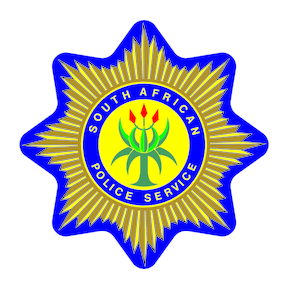
The Definition of Rape and Consent
The new South African law around rape came into effect in December 2007. This law is called the Sexual Offences and Related Matters Amendment Act, No. 32 of 2007.
Important Features of the Sexual Offences act:
Important Features of the Sexual Offences act:
- The age of consent for both men and women is now 16 years
- Rape victims must get anti-retroviral drugs to prevent them being infected with HIV
- Rape victims may ask the court to test alleged rapists for HIV
- All sexual crimes are included in one law
- A number of new sexual crimes, particularly those affecting children and people with mental disabilities, have been created
- All forms of sexual abuse or exploitation are crimes
- Both men and women are considered to be victims and perpetrators of rape
- A National Register of Sex Offenders has been established that prohibits people who have been convicted of sexual offences against children and/or people with mental disabilities from working with either of these two groups.
What is the definition of Rape?
Rape is an act of Sexual Penetration of a victim, without their consent. Rape occurs when- Someone inserts their genital organs into the mouth, anus or genital organs of a victim
- Any part of someone’s body, such as a finger, goes into the anus or genital organs of the victim
- Any object, like a stick or a bottle is put into the anus or genital organs of the victim
- The genital organs of an animal are put into the mouth of the victim
Sex acts become crimes when they are performed without the permission (consent) of the person they are performed on. People may not use their marriage as an excuse to rape their partners.
You have not consented to a sex-act if you are
- Intimidated, forced or threatened in any way, through violence or threats of violence against you or someone you love, or damage to your property
- Compelled by someone who abuses their power or authority, for instance if someone tells you that you will lose your job if you do not have sex with them
- Lied to by a doctor or other health-worker who tells you that a sex act is part of a physical examination, or is necessary for your mental or physical health
- Asleep
- Unconscious
- Under the Influence of drugs or alcohol
- A child under the age of 12
- A person with a mental disability

According to saps.gov.za, here are some rape preventative measure you should know:
How to avoid rape situations
- Avoid walking alone as much as possible. Your best defence is having other people nearby.
- If you walk alone, plan your route carefully. Notice stores or restaurants that are open should you need to ask for help.
- Stay in well-lit areas as much as possible.
- Walk on the side of the street facing traffic.
- If you work late, don't go to your car alone if you can avoid it. Ask somebody to escort you to your car.
- Have your keys ready when you approach your car, home and enter immediately.
- Never pick up hitchhikers of either sex.
- Do not leave food or drinks unattended in public places.
- Do not accept drinks or food from strangers. They could be spiked - say No.
- Do not leave a party or a social event with someone you do not know or just met. Say No.
- Do not hitchhike.
- When you get home and find that a door or a window has been forced open while you were absent, do not enter. Call the police.
- Never allow people that you do not know into your house.
- Remember: most victims know the rapists.
YOU HAVE THE RIGHT TO SAY NO!!!
Preventative Measures for Children Against Sexual Assault
Here's an excerpt from RAINN ( Rape, Abuse and Incest National Network ) where they stipulate what you can do to assist in ensuring your children's safety against forms of sexual assault and / or abuse.
Talk to your children about sexuality and sexual abuse in age-appropriate terms.
- Talking openly and directly about sexuality teaches children that it is okay to talk to you when they have questions.
- Teach children the names of their body parts so that they have the language to ask questions and express concerns about those body parts.
- Teach children that some parts of their body are private.
- Let children know that other people should not be touching or looking at their private parts unless they need to touch them to provide care. If someone does need to touch them in those private areas, a parent of trusted caregiver should be there, too.
- Tell children that if someone tries to touch those private areas or wants to look at them, OR if someone tries to show the child their own private parts, they should tell a trusted adult as soon as possible.
- All children should be told that it’s okay to say “no” to touches that make them uncomfortable or if someone is touching them in ways that make them uncomfortable and that they should tell a trusted adult as soon as possible.
- This can lead to some slightly embarrassing situations, such as a child who then says they don’t want give a relative a hug or kiss! Work with your child to find ways to greet people that don’t involve uncomfortable kinds of touch.
- Talking openly about sexuality and sexual abuse also teaches children that these things don’t need to be “secret.” Abusers will sometimes tell a child that the abuse is a secret. Let your children know that if someone is touching them or talking to them in ways that make them uncomfortable that it shouldn’t stay a secret.
- Make sure to tell your child that that they will not get into trouble if they tell you this kind of secret.
- Don’t try to put all this information into one big “talk” about sex.
- Talking about sexuality and sexual abuse should be routine conversations.
Be involved in your child’s life.
- Be interested in your child’s activities.
- Ask your child about the people they go to school with or play with.
- If your child is involved in sports, go to games and practices. Get to know the other parents and coaches.
- If your child is involved in afterschool activities or daycare, ask them what they did during the day.
- Talk about the media.
- If your child watches a lot of television or plays video games, watch or play with them.
- Many TV shows (for example, CSI or Law and Order) show sexual violence of different kinds. Some video games (for example, Grand Theft Auto) allow the user to engage in sexual violence.
- Use examples from TV or games that you have watched or played together to start up conversations about sexuality and sexual abuse.
- Know the other adults that your child might talk to.
- Children sometimes feel that they cannot talk to their parents.
- Know the other trusted adults in your child’s life.
Be available.
- Make time to spend with your child.
- Let your child know that they can come to you if they have questions or if someone is talking to them in a way that makes them feel uncomfortable.
- Be sure to follow up on this! If your child comes to you with concerns or questions, make time to talk to them.
When you empower your child to say “no” to unwanted touch and teach them that they can come to you with questions and concerns, you take critical steps to preventing child sexual abuse.

Indian Protesters against Rape
BOOKLETS TO ASSIST GIRLS AND WOMEN
1. Woman: Know Your Rights by the Women’s Legal Centre
2. Sexual Offences Act Booklet
3. Child Sexual Abuse Explained
4. You and Rape
5. How To Deal With HIV After Rape
6. Rape Myths
7. Sexual Harassment Manual by Women’s Legal Centre
NGO's & NPO's WHO PROVIDE ASSISTANCE
Life Line
24-hour crisis intervention service. "Emotional First Aid station". Free, confidential telephone counselling, rape counselling, trauma counselling, Aids counselling, and a range of other services. Not-for-profit organisation.
Website: www.lifeline.org.za
Directory of Life Line centres and programmes
Website: www.lifeline.org.za
Directory of Life Line centres and programmes
Children in Crisis
Child Line
Assistance from trained counsellors for abused children, young people and their families. Not-for-profit organisation. 24-hour toll-free helpline: 0800 055 555
SA National Council for Child Welfare
The co-ordinating body for 177 affiliated child welfare societies, organisations and community outreach projects.
Johannesburg Child Welfare Society
Services Johannesburg and broader community and offers services to abandoned, abused and neglected children. Also facilitates adoption and foster care.
Telephone: 011 331 0171
Website: www.jhbchildwelfare.org.za
Website: www.jhbchildwelfare.org.za
Police Child Protection Units
Special police units that investigate violent crimes against children and offer specialised services to child victims of crime. There are 45 such units around the country.
Woman in Crisis
People Opposed to Woman Abuse (POWA)
Gauteng-based organisation offering shelter and counselling services to women in abusive relationships, rape survivors, survivors of incest etc.
Telephone: 011 642 4345
Website: www.powa.co.za
Website: www.powa.co.za
Stop Woman Abuse
Crisis counselling for women who have been raped or abused, advice and support for people wanting to support women in need of help. Legal and other options available for abused women and rape survivors. Run by Life Line.
Telephone: 0800 150 150
Website: www.stopwomenabusehelpline.org.za
Website: www.stopwomenabusehelpline.org.za
Speak Out
Rape emergency information, services, advice, links. Non-governmental organisation.
Website: www.speakout.org.za
Rape Crisis
Rape crisis counselling, court preparation, support groups, important contact numbers. Non-governmental organisation.
Website: rapecrisis.org.za
Alcohol & Drug Addiction
Alcoholics Anonymous SA
Worldwide fellowship for alcoholics supporting those choosing to be sober. Only requirement for membership is a desire to stop drinking.
Telephone:
Johannesburg, 011 436 0116
Cape Town, 021 592 5047
National website, Johannesburg/West Rand website, Cape Town & Western Cape website
Johannesburg, 011 436 0116
Cape Town, 021 592 5047
National website, Johannesburg/West Rand website, Cape Town & Western Cape website
Al-Anon
For families and friends of problem drinkers, with a special section (Alateen) for children of alcoholics, as well as for adult children of alcoholics.
Narcotics Anonymous SA
NA is a non-profit organisation for recovering drug addicts who meet regularly to help each other stay clean.
SA National Council on Alcoholism and Drug Dependence
SANCA provides specialised and affordable prevention and treatment services for alcohol and other drug dependence. Based in Johannesburg with 38 affiliates (counselling centres) that operate independently.
Head office: 011 482 7187
Website: www.alanon.org.za
Website: www.alanon.org.za
Mental Health, Depression & Anxiety
SA Depression & Anxiety Group
SADAG campaigns to eliminate discrimination and stigma in the field of mental health and to support, educate and assist the public, patients and their families with mental health problems and issues. Provides information on depression, panic disorder, social phobia, generalised anxiety disorder, post-traumatic stress disorder, bi-polar mood disorder, obsessive compulsive disorder, schizophrenia and an array of other psychiatric conditions - including those affecting children and the elderly, and suicidal behaviour. Can help you find a psychiatrist, psychologist, or GP with special interest in mental health in your area. Helpline staffed by trained and counsellors.
Help line: 011 262 6396 (8am - 8pm, seven days a week)
Suicidal Emergency: 0800 567 567
E-mail: Zane Wilson (founder) for counselling queries
Website: www.sadag.org
Suicidal Emergency: 0800 567 567
E-mail: Zane Wilson (founder) for counselling queries
Website: www.sadag.org
Family & Marriage
Family and Marriage Association of SA
Famsa supports families through stressful situations: offers counselling and education to strengthen marriage and other relationships in the family. Assists with divorce, mediation, domestic violence, trauma, grief counselling etc. Famsa has 27 offices around the country.
Pregnancy, Contraception, Abortion
Marie Stopes Clinics
Has 30 day clinics and 10 micro clinics around the country offering safe abortions, family planning services including birth control, pregnancy tests, male and female sterilisation, HIV testing and ante-natal services. Fees charged according to client's income bracket.
Toll free: 0800 11 77 85
Telephone: 011 838 3271
Website: www.mariestopes.org.za/home.aspx
Toll free: 0800 11 77 85
Telephone: 011 838 3271
Website: www.mariestopes.org.za/home.aspx
Emergency Contraception Hotline
24-hour toll-free hotline for information and referrals on emergency contraception. A public-private partnership between the provincial health department, the University of Stellenbosch, the World Population Foundation, and private clinic Medi-Challenge.
Toll-free Helpline: 0800 246 432




0 comments:
Post a Comment